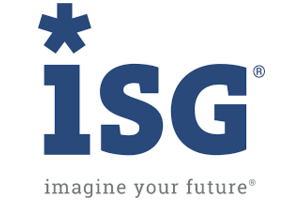The COVID-19 pandemic has driven more German enterprises to adopt intelligent automation technologies such as robotic process automation and artificial intelligence, according to a new report published by Information Services Group (ISG), a global technology research and advisory firm.
The 2020 ISG Provider Lens™ Intelligent Automation – Solutions and Services Report for Germany finds that enterprises in the country are embracing digital transformation to help future-proof their businesses. At the heart of the transformation are intelligent automation technologies, including cognitive optical recognition, machine learning, natural language processing and advanced analytics.
The report focuses on providers that offer proprietary platforms and related integration and delivery support services. Many companies prefer this type of solution, while others prefer to work with consultants and providers, such as ISG Automation, that are platform-agnostic and offer integration and support services across a range of platforms.
“German enterprises want to remain competitive, increase agility and effectively deliver value to customers, and intelligent automation drives forward these goals,” says Jan Erik Aase, partner and global leader, ISG Provider Lens research.
The economic impact of the COVID-19 pandemic, meanwhile, will be long-lasting, and enterprises that implement intelligent automation will be able to optimise costs, productivity and capacity, while reducing risks in the short term, the report says. In many cases, however, German enterprises lack the knowledge to implement intelligent automation on their own and are instead seeking outside service providers to revamp their business and IT operations.
The report finds large enterprises in Germany rapidly embracing intelligent automation, while mid-sized companies are gradually moving in this direction.
Many businesses are extending automation to front- and middle-office functions, the report adds. Automation is common in IT infrastructure operations and traditional back-office tasks such as finance and accounting, but German enterprises are now adding automation to supply chain, customer service, and sales and marketing functions.
The reason to implement intelligent automation extends beyond reducing headcount, the report says. The goal is shifting from cost savings to improved productivity, amid a growing appreciation that technology automates routine work, but doesn’t replace jobs. Enterprises with advanced automation capabilities expect the technology to improve employee productivity, data accuracy and customer experiences.
At the same time, German enterprises are focusing on organisational change management to help employees adapt to the introduction of advanced technologies into business processes and to allay fears about job losses. Companies are encouraging employees to embrace automation and foster a culture of collaboration with digital tools for transactional tasks.
German companies are also focusing on reskilling and upskilling employees for jobs of the future, the report adds. Several organisations are collaborating with service providers to train employees in digital skills such as artificial intelligence, machine learning, and advanced analytics to empower them to focus on high-value tasks.
The 2020 ISG Provider Lens™ Intelligent Automation – Solutions and Services Report for Germany evaluates the capabilities of 44 providers across three quadrants: Intelligent Business Automation, Artificial Intelligence for IT Operations (AIOps) and Conversational AI. The report evaluates only those providers offering their own proprietary automation platforms; it does not cover independent providers, like ISG Automation, that offer solutions across a range of platforms.
The report names Accenture, Arvato Systems, Atos, Capgemini, DXC Technology and IBM as Leaders in two quadrants and Artificial Solutions, Axians, Cognigy, DATAGROUP, TCS and Wipro as Leaders in one.
In addition, All for One Group, Almato, CANCOM and HCL were named Rising Stars companies with “promising portfolios” and “high future potential” by ISG’s definition in one quadrant each.
A customised version of the report is available from Artificial Solutions. The 2020 ISG Provider Lens™ Intelligent Automation – Solutions and Services Report for Germany is available to subscribers or for one-time purchase here.
Comment on this article below or via Twitter: @IoTNow_OR @jcIoTnow










